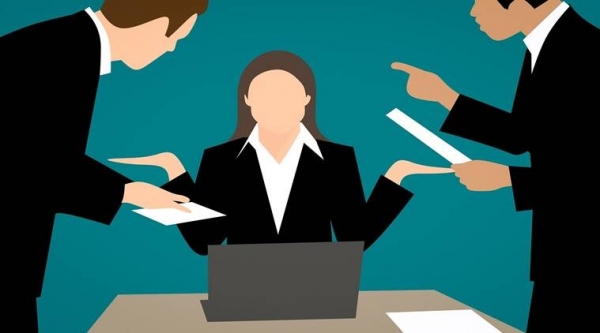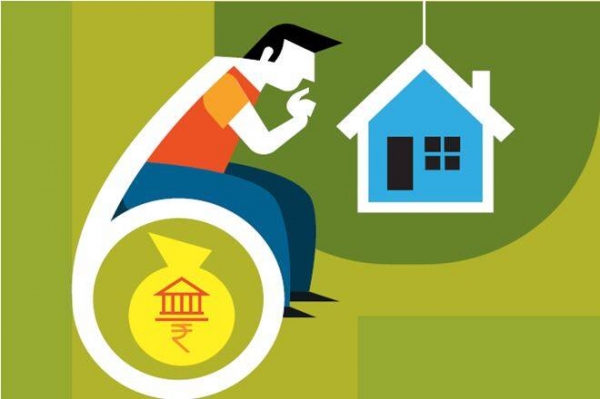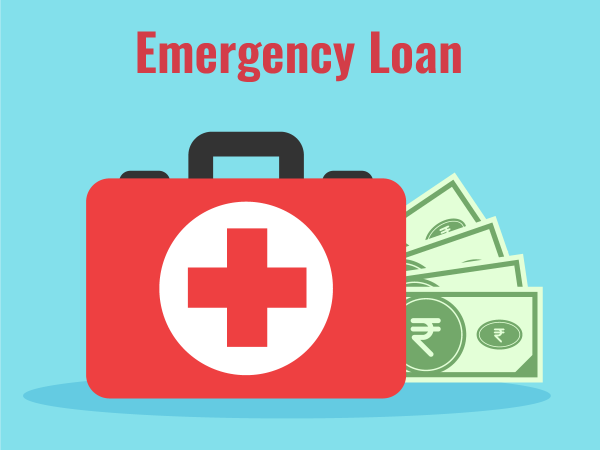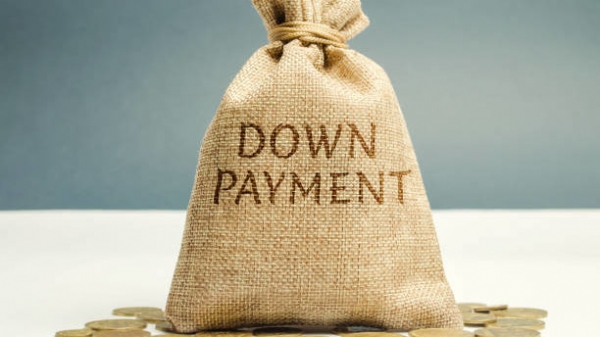8 home loan mistakes to avoid now - Business2Business
Are you in a stable job? Interest rates may be low, but is your job safe? Given the uncertainty caused by the COVID virus, you need to make sure that
- by B2B Desk 2020-09-17 07:06:42
Now that home loans are available at delectably low rates of 6.7% upwards, the house you want to buy might be within your reach. You may not be wrong in wanting to buy it, but in a hurry to take advantage of these prices you don’t take on a liability that you are not ready for. Not only can you make mistakes that could lead to debt traps and financial insecurity, but it can also create roadblocks to any future loans you want to take out and put your other financial goals, like your children's education or retirement, at risk. These are the risks you may be exposed to without realizing it and the ways you can avoid them.

-
Which should you choose first: a home or home loan?
In your passion for buying a home, you may end the deal with a broker only to realize that the bank has refused to sanction your loan. What if the seller wants to pay within a certain period of time and you don't have the money? What if I can't send the primary EMI or even the mandatory down payment required by the bank? If you need to finance your purchase, it is important that you first know all the details about the loan.
So, before you start looking for a home, find the right lender and do your due diligence, check your credit score, the size of the loan you can take advantage of, the processing fees and other fees charged by the bank, and the advance payment requirement, if applicable. This will help you calculate exactly how much money you need available and how much loan you can take advantage of.

-
Are you in a stable job?
Interest rates may be low, but is your job safe? Given the uncertainty caused by the COVID virus, you need to make sure that your sector or industry, and the company, in particular, is financially stable and that your job and salary are safe. You may not be able to repair a large EMI if you anticipate a pay cut or business cut. A default on EMI can also affect your credit score. So make sure you can make equal long-term monthly payments before applying for a major home loan.

-
Did you default on loan EMIs during the lockdown?
Have you suffered a pay cut or lost your job in the last six months due to the pandemic? Did this cause EMI to default on another loan, for example for your car? Or you may not have paid the minimum amount due on your credit card. After losing your job, were you forced to take a job with a much lower salary? All of these developments will affect your credit score and the amount of home loan you can take advantage of.
So if you've planned to get a larger loan based on your salary, you may need to realign your accounts and pay off a smaller home based on your loan eligibility and the amount of down payment you can make. Likewise, after an EMI defaults, check your new credit score and loan eligibility before you start looking for a home and calculate the amount of EMI you will be able to service based on your salary.

-
Are you ready for financial emergencies?
Before you get a big loan, make sure all your financial risks are insured. Due to current uncertainties, you may encounter various crises. For example, you may be short of money to save for your down payment in the event of market-related losses. If you lose your job or suffer a pay cut, you may not be able to serve EMIs and risk default. Also, sudden death or disability can make you unable to repay the loan.
Provide a sufficient reserve amount as an emergency contingency to overcome a temporary crisis, such as job loss. It should be separate from your usual emergency kit. Also, instead of getting home loan insurance, you should have a term loan that covers the full amount of the home loan in the event of sudden death or disability.

-
Is your working spouse a co-borrower and co-owner?
If your spouse is making a profit, it might be a good idea to make her the primary applicant, as women are offered lower interest rates than men. Additionally, having your spouse as a co-owner and partner in demand increases tax benefits at the expense of repayment of principal and interest. Under Section 24B, spouses can claim tax benefits of up to Rs 2 lakh each on the payment of interest in the case of a home occupied by themselves, and under Section 80C, up to Rs 1.5 lakh each on the refund of the principal.

-
Do you have funds for a down payment?
The Reserve Bank of India has directed all banks and non-bank finance companies to approve a maximum of 80% of the property's value as a home loan, with the remaining 20% to be provided by the applicant. So if you are buying a house for Rs 80 lakh you will have to make a down payment of Rs 16 lakh to the bank. Some banks also require a higher percentage of the down payment. Add in the miscellaneous expenses such as registration fee, processing fee, stamp duty, etc., and the initial amount you have to pay will be higher.
If you were saving for your down payment and incurred large losses from market fluctuations during the pandemic, it is advisable to suspend the purchase until the required amount has accumulated rather than taking a larger loan. The larger the loan, the higher the interest rate you'll pay, even if the rates are low.

-
Are you buying a house for investment?
If you are buying a house for self-occupation and you have sufficient funds for the down payment and EMIs, then this could be the ideal time to make a purchase due to low-interest rates that start at 6.7%. However, low prices should not be the motivation to buy a home as an investment.
Low and slow real estate prices mean you may not be able to realize the appreciation you are expecting from your investment. Second, you may not be able to find buyers for your property on time in a deteriorating property market and may have to sell it at a loss. This means that if you tie the investment to a financial goal, you may not be able to achieve it or may not have the necessary funds. So avoid buying a home as an investment in the current situation, even if the prices are attractive.

-
Are you taking the right loan?
Choosing the correct type of interest rate will be an important factor in determining your long-term repayment. There are different types of rates, including the fixed rate and the variable rate, as well as a combination of the two offered by some banks. You can switch between fixed and variable rates for a small fee.
The fixed interest rate is fixed for the life of the loan and is usually between 1 and 25% higher than the variable rate. It should only be taken advantage of if you are confident that interest rates will go up in the future and you want to stabilize the lower rate in the short term. The floating rate changes according to the market interest rate and must be taken on long-term loans, as it is difficult to predict market volatility over a longer period. So choose the right rate for your needs before finalizing the loan.
Also Read: New Apple iPhone 12, iPhone 12 Pro Releases Revealed
POPULAR POSTS
By 2030, 60% of New Home Buyers Will Be Millennials and Gen Z in India: JLL Report
by B2B Desk, 2024-12-27 06:34:31
GBC@IV: PM Modi to launch over 14,000 projects worth Rs 10 lakh crore in UP
by B2B Desk, 2024-02-19 07:12:52
Nitin Gadkari launches 28 NH projects worth Rs 6,600cr in Odisha
by B2B Desk, 2024-02-16 06:23:10
How InvIT will help construction companies to boost Infrastructure Development
by B2B Desk, 2023-05-09 07:36:30
Sunteck Realty leases commercial space to Upgrad, to make Rs 2,000 cr
by B2B Desk, 2023-03-02 09:02:34
Godrej Properties buys 60-acre land in Chennai to develop housing project
by B2B Desk, 2023-01-13 06:35:04
Godrej Properties buys 9-acre land in Gurugram, eyes revenue of Rs 2,500 cr
by B2B Desk, 2022-12-30 04:27:30
RECENTLY PUBLISHED

Loan EMIs to Drop as RBI Slashes Repo Rate - Full MPC December 2025 Highlights
- by Shan, 2025-12-05 11:49:44

The Agentic Revolution: Why Salesforce Is Betting Its Future on AI Agents
- by Shan, 2025-11-05 10:29:23

Pine Labs IPO 2025: Listing Date, Grey Market Premium, and Expert Outlook
- by Shan, 2025-11-05 09:57:07

Top 10 Insurance Companies in India 2026: Life, Health, and General Insurance Leaders Explained
- by Shan, 2025-10-30 10:06:42

OpenAI Offers ChatGPT Go Free in India: What’s Behind This Big AI Giveaway?
- by Shan, 2025-10-28 12:19:11

Best Silver Investment Platforms for 2025: From CFDs to Digital Vaults Explained
- by Shan, 2025-10-23 12:22:46




 Subscribe now
Subscribe now 